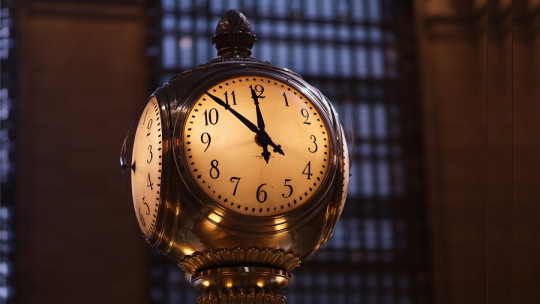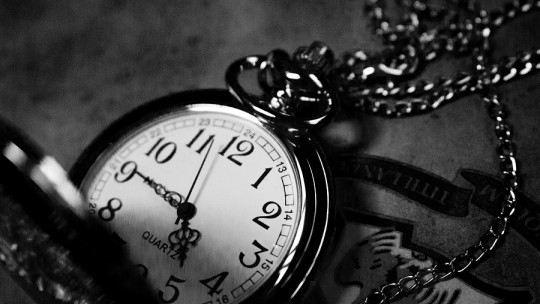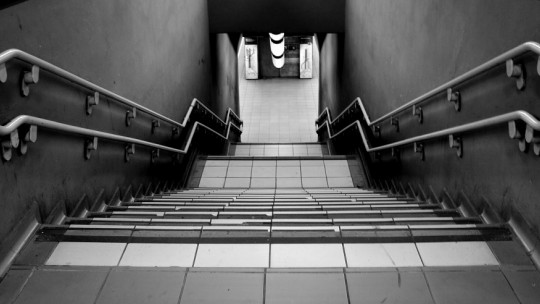
We all grow older as the years go by. As time goes by, people accept that there is nothing we can do to change this situation. However, some people experience an irrational fear of aging, which is known as gerontophobia or gerascophobia, as they suffer great anxiety about physical changes and the consequences that reaching old age has for a person.
However, other individuals experience a great fear of the passage of time, something that causes them great discomfort. This phobia is called chronophobia, and in this article we will learn about its characteristics, its causes, its symptoms and its treatment.
What is chronophobia
Chronophobia is a specific phobia and, therefore, an anxiety disorder. It is an irrational fear that creates great discomfort and anxiety for the person who suffers from it, who tends to avoid the phobic stimulus in an attempt to reduce the negative symptoms associated with this disorder.
According to experts, the elderly and people in prison experience it more frequently. In the latter case, it has been coined “prison neurosis.”
As for the elderly, they are close to the end of their life and may experience high levels of anxiety due to the passage of time, which can make them feel that time is slipping away and they experience strong fear, anxiety and anguish.
Chronophobia can cause a significant and serious alteration in the lives of people who suffer from it, since they are constantly in contact with the phobic stimulus, that is, the element they fear. No one can stop time, so this phobia can develop at any time and anywhere. When anxious responses appear, it is difficult for the person to avoid the feared situation.
Causes of this phobia
The causes of this phobia are not clear, since the phobic stimulus that elicits it is something more complex and abstract than other specific phobias, such as the fear of flying, the fear of clowns or the fear of spiders.
The vast majority of specific phobias are caused by a traumatic experience during childhood. This occurs through associative learning called classical conditioning, since an association is produced between a stimulus that provokes a reflex response of fear and another that at first does not produce it, but that with joint exposure ends up producing it.
This concept, initially investigated by Ivan Pavlov, became known primarily through the experiments of John B. Watson, an American psychologist who conducted a series of studies, which today would be considered unethical, with a young boy named Albert. At the beginning of the experiment, the subject enjoyed the company of a pretty white rat, but after successive trials, he was unable to approach the animal due to the intense fear he suffered from the harmless creature.
Other causes of this phobic disorder
Now, in the case of chronophobia, the development of this irrational fear has a lot to do with the irrational beliefs that the person has, and the individual’s lack of acceptance of what life is.
Some experts say that there may also be a genetic origin, for example, adrenal insufficiency, which causes the adrenal glands to not produce adequate amounts of hormones such as cortisol or aldosterone, which tends to make a person more susceptible to anxiety and fear. Some people may also have an anxious personality type, which can facilitate the onset of the disorder.
On the other hand, other health professionals believe that people are biologically predisposed to suffer irrational fears, since fears have to do with the primitive brain, and phobias are produced by associations of this type and not cognitive ones, so They do not usually respond to logical arguments. This, which may have been very adaptive in the past and has contributed to the survival of human beings over the centuries, can cause this type of disorder.
Symptoms of fear of the passage of time
Like any phobia, the fear of the passage of time causes a series of characteristic symptoms. The person suffers great anxiety as a result of their irrational ideas about the passage of time. Confusion, daze, lack of concentration, etc., are some of the cognitive symptoms that the person experiences.
In addition, a series of physical and physiological symptoms occur, such as the following:
Treatment and therapy
Phobias are common disorders, which is why there are a large number of studies regarding the effectiveness of treatment. These studies indicate that psychotherapy is really helpful, especially cognitive behavioral therapy.
This type of therapy includes different techniques, but the most notable for treating phobic disorders are breathing techniques and exposure techniques (real or imagined). A technique that includes both techniques is systematic desensitization in which the patient is exposed to his fear and at the same time is taught a series of strategies that allow him to face his irrational fear in the best positive way.
For this type of phobias, in addition, cognitive therapy based on Mindfulness and acceptance and commitment therapy are also very useful, which focus on acceptance, the context and how the patient relates to the situation and the problem.
In severe cases, pharmacological treatment is indicated, but always in combination with psychological therapy.








